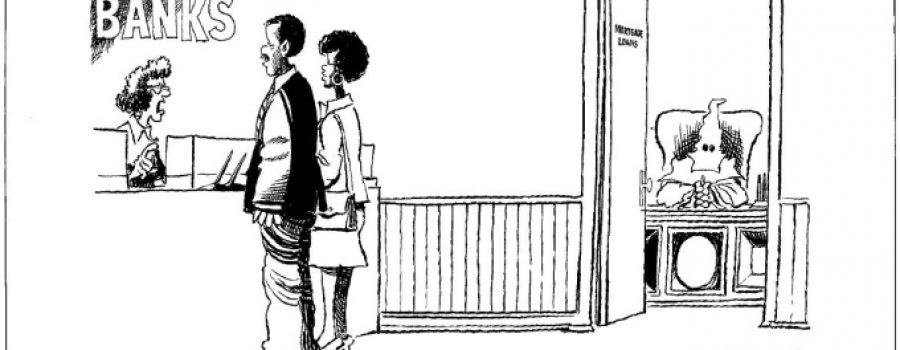Before you start your home ownership journey, you should be aware of the housing laws in Massachusetts. This article will explore how a history of racism installed discriminatory policies. We’ll also identify your legal rights as a buyer and renter. Finally, we’ll show you how to spot a red flag when realtors, lenders, or property sellers violate fair housing laws.
A History Of Housing Discrimination

Housing discrimination is a byproduct of racist policies. Many of these laws were put in place by the very government that oversees fair housing today. Following the population boom after World War 1, the New Deal established the FHA to promote home ownership. As part of the deal, the FHA was to help new homeowners by insuring their mortgages. Many first time buyers in Massachusetts will recognize this as PMI (Private Mortgage Insurance). Fearing that non-White American homeowners may decrease neighboring home values, the FHA systematically promoted policies to deny FHA-insured mortgages to African Americans. This process was coined as redlining where Americans of color were denied from purchasing homes in white neighborhoods. For a more detailed account of this, check out The Color of Law by Richard Rothstein.
Housing discrimination does not merely exist through a mortgage denial. Real estate agents who steer would-be buyers from one neighborhood to another based on ethnicity and race is called blockbusting. Like redlining, blockbusting or racial steering is also against fair housing laws in Massachusetts.
House Laws In Massachusetts: Protected Groups

There are nuances to fair housing. You cannot claim housing discrimination if lenders won’t lend you money because of your low credit score or your income. The HUD (Housing and Urban Development) has released a list of protected classes [HUD Reference Link]. For example, because of the lead paint policy (see how lead paint can affect your first home), many landlords may not want to rent the home to a family with children. Family-status is a protected class so if a landlord denies a rental to an applicant solely because they have children, that would be recognized as housing discrimination.
Of course some leeway are afforded to brokers, lenders, and owner homeowners. There are still legitimate ways to qualify a buyer or renter by using application data such as criminal history or income. This may include parameters like insufficient income, smoking status, violent criminal history and more.
What should you do if you were discriminated against?

America has come a long way and put in place many protections for minorities and people of color. However, systemic racism is still very much entrenched. As a first time home buyer in Massachusetts, here are some steps you can take if you find yourself in a discriminatory situation:
First: Clarify
In most cases, what may appear as discriminatory behavior is merely simple miscommunication. Real estate professionals understand the seriousness of housing discrimination and the consequences. If the professional said anything inappropriate, find time to speak with her privately to clarify. Don’t jump to conclusions right away.
Second: Supervisory Involvement
If a direct conversation did not stop the discriminatory behavior, the next step is to speak directly with their supervisor. Don’t let one bad apple spoil the whole batch. Let the supervisor deal with the issue and if you still want, have him assign a different agent to work with you.
Third: Systemic Issue
We like to believe in the goodness of people, especially in a service oriented industry like real estate. However, some issues are beyond repair and you’ll need to notify the Fair Housing Department of the incident. Make sure you maintain written records of what happened.
In Massachusetts, housing discrimination is taken very seriously. Our fair housing law is a byproduct of many hard fought battles to promote equality in this country. These housing laws in Massachusetts are there to help empower buyers and we hope this will aid you in your home ownership journey.





